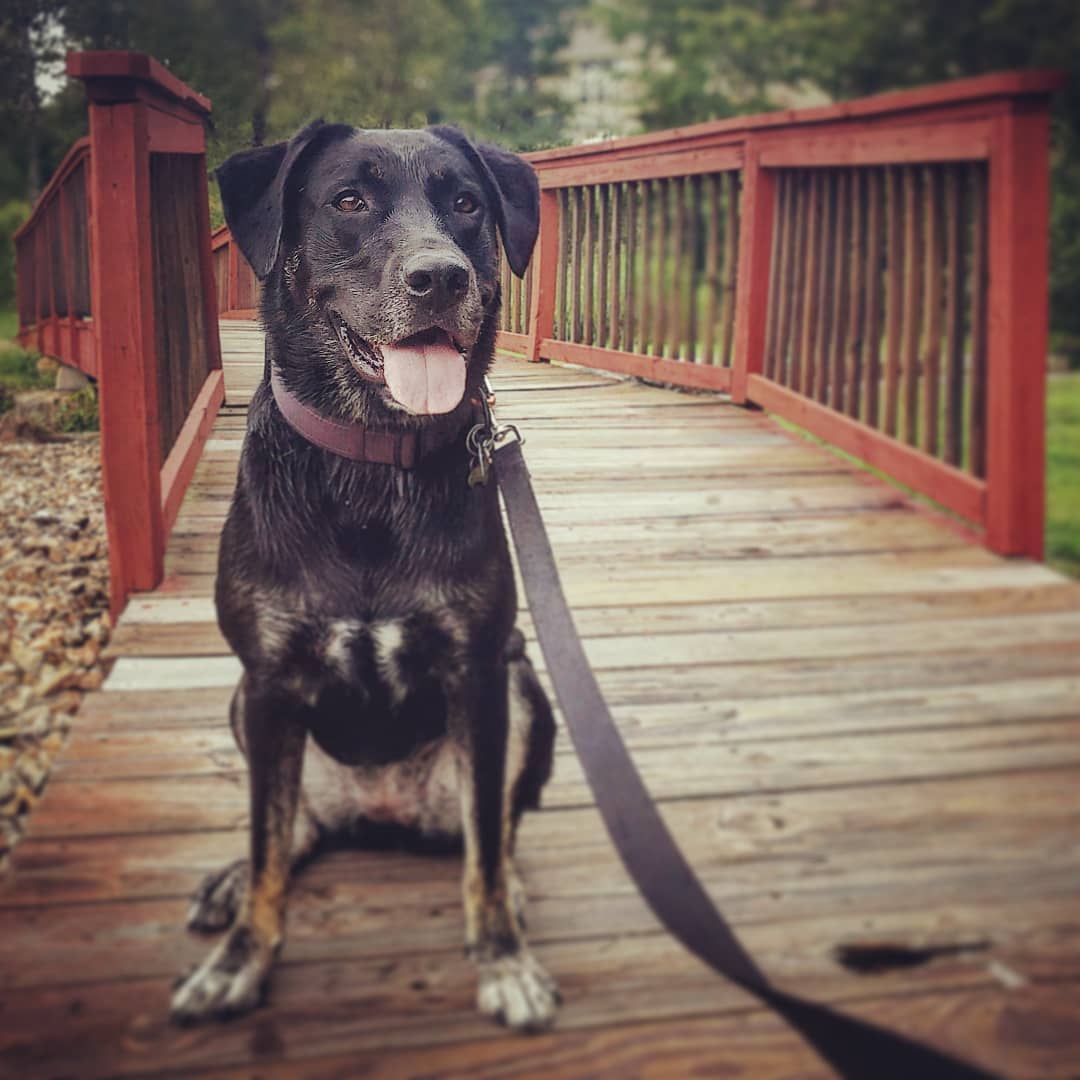Most people who met Daphne while she was at TAPS will likely remember her as the curly-tailed, 80lb dog that would springboard off all fours and jump five feet in the air if you lingered too long in front of her kennel. The first time I met Daphne, I’ll admit I was intimidated by her and she barked so intensely at me through her kennel, I was certain there was something about me she didn’t like. Now, four months after I took her home for what was inevitably going to be a foster fail, I can’t picture my life without her.
Originally picked up as a stray by Tazewell County Animal Control after neighbors reported her rooting through garbage, Daphne was eventually transferred to TAPS, where she would stay for the next year, to the bewilderment of staff and volunteers alike. While it was required that she be adopted into an adult-only home, it was still difficult to understand why this highly intelligent, dog and people friendly, two-year old lab/shepherd mix was repeatedly getting over looked at the shelter. Fortunately, as with all the long-term animals at TAPS, Daphne had a loving following of staff and volunteers. But even with this incredible group of people, staff were increasingly worried about the long term behavioral and mental health effects from spending so many months at the shelter.


I starting volunteering at TAPS in the fall of 2019 with the intent of adopting a long-term shelter dog and I’ve found it to be one of the most rewarding and challenging experiences for an animal lover. In some ways it is similar to adopting a puppy: potty, kennel, and leash training all need to be taught over the first few days/weeks requiring lots of patience and consistency. In other ways though, teaching a headstrong, adult dog those things is not at all the same as teaching a small puppy (Daphne would teach me this very important lesson on our very first walk by pulling me to the ground HARD chasing after a squirrel).
Additionally, long-term shelter dogs often come with a variety of learned behaviors and other experiences that create their own unique challenges. Daphne, for example, was unlikely socialized as a puppy so she has difficulty meeting strangers and new dogs and is unpredictable around small children. Having spent a significant portion of her life in the shelter, she thrives on a rigid schedule and gets anxious if food and walks don’t come at the proper times. She is reactive to bicycles and motorcycles and this initially made walks difficult.





In my experience, adopting a long term shelter dog requires more understanding and patience than adopting a puppy. You need to give them time to decompress and understand that they might need some alone time when you first bring them home. Alternatively, they might not leave your side and you’ll need to set healthy boundaries. You need to meet them where they are and cannot expect miracles overnight. You need to support and encourage them and give them confidence where other people have failed. Slowly introduce them to new experiences one step at a time. Invest in a good trainer when you need help addressing more complicated behavioral issues. Most of all give them love.
Daphne is a smart, loving, active dog that thrives on attention and while she still has room to grow, she has made incredible progress in four short months. She loves walks and playing in her pool. She loves playing fetch and chewing on sticks. She is seeing a trainer for some behavioral issues that will allow her to be a happy, healthy, adult dog. She recently joined us on a family vacation where she took multiple walks daily, swam in a lake for the first time, and met lots of new people who said what a beautiful and well-mannered dog she is. Adopting a long-term shelter dog is not for everyone, but I have found it to be an extremely rewarding experience and I am so looking forward to watching Daphne grow into the beautiful, strong, confident dog everyone knows she is!



